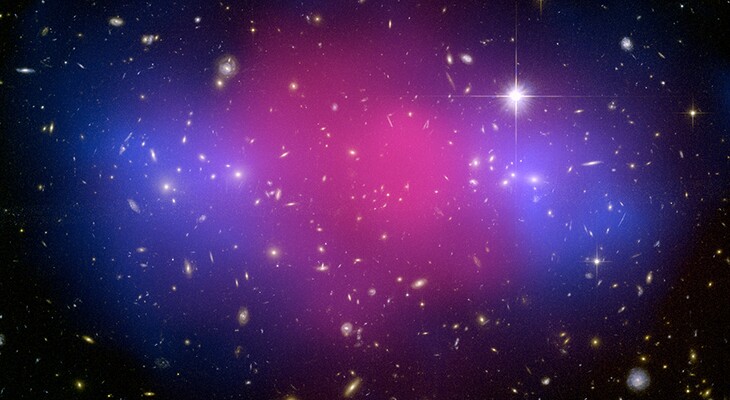My Prediction for the 2015 Nobel Prize In Physics

My Prediction for the 2015 Nobel Prize In Physics lead image
nasa.gov | http://go.nasa.gov/1QLmaOR
(Inside Science Currents) -- After correctly predicting light-emitting diodes
First, let me remind you of an apparent pattern
I predict that the 2015 Nobel Prize in physics will go to Vera Rubin and Kent Ford for their work in discovering that most of the matter in galaxies — and the universe in general — appears to be made of “dark matter.” I am not the first or only person to predict that this research will be recognized with a Nobel Prize, as there is even a Facebook page lobbying for a Vera Rubin Nobel in 2015
This modern idea of dark matter goes back to the 1930s, through the observations of scientists such as Jan Oort and Fritz Zwicky. Oort found some evidence that stars in the Milky Way were moving faster than would be explained by the gravitational forces of other visible matter on them. Zwicky cleverly estimated the amount of mass in a large cluster of galaxies and used the German phrase dunkle Materie (“dark matter”) to express the idea that much of the matter that gravitationally drove motion within the cluster could not be seen. However, the Nobel Prize can only be awarded to up to three individuals known to be alive, and so it can’t be given to Zwicky or Oort.
Fast-forward to the mid-1960s when Rubin and Ford both worked as researchers at the Carnegie Institution in Washington, D.C. Rubin was interested in the speeds of stars orbiting the outer regions of galaxies, a little-studied topic, as Rubin recounts in a 2006 Physics Today essay
So Rubin and Ford, and many others after them, found strong evidence for dark matter through their measurements of the velocities of stars in galaxies. Several other types of astronomical observations, such as the formation of large structures in the universe, suggest the existence of dark matter.
But there remains one major problem. Despite decades of intensive searches, scientists have not conclusively detected the actual particles that would make up most of this dark matter. The identity of dark matter remains a mystery.
Despite the lack of evidence, I still think that Rubin and Ford could still be named as recipients of the Nobel Prize. The winners of the 2011 Nobel Prize in physics made their discoveries on the accelerating universe in the 1990s, much later than Rubin and Ford. The prize was awarded even though physicists didn’t know then and still don’t know the identity of the “dark energy” that is apparently driving the acceleration.
Another obvious candidate for a cosmology and astronomy related Nobel Prize is the detection of planets outside the solar system, or exoplanets. The physics of detecting these planets — many hundreds of them reported by now – is ingenious and worthy of a Nobel Prize. However, the field — and its stars — are still relatively young. So, I will go out on a limb to predict this as a 2019 Nobel Prize, if previous patterns continue and dark matter does not receive the distinction this year. (I have Inside Science intern Michael Greshko to thank for encouraging me to add dates to these predictions!)
There are other notable candidates for a physics Nobel Prize, but again, I expect these to occur on other years, if the cosmology/astronomy pattern holds for 2015. There are too many to mention here, but these would include metamaterials (a candidate for the next materials-related prize, in 2018, perhaps?), quantum entanglement (a candidate for the next quantum prize, in 2016, maybe?), Fermi condensates (also a future quantum prize, perhaps in 2016 or 2020?), and any major discoveries of new particles in the Large Hadron Collider (in 2017)? There are many other worthy candidates, of course. And the Nobel Committee may break from this recent pattern and shock us all with a non-cosmology prize.
But my mind, and heart, are set on dark matter this year.
What are your predictions? Please enter them in the comments below!


